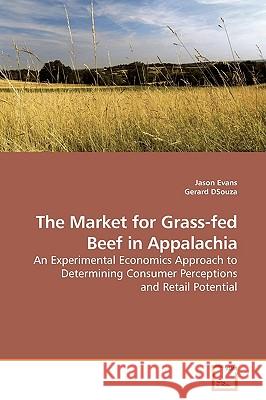The Market for Grass-fed Beef in Appalachia » książka
The Market for Grass-fed Beef in Appalachia
ISBN-13: 9783639184846 / Angielski / Miękka / 2009 / 190 str.
For the past thirty years, producers and other actors in the U.S. beef sector have continually faced challenges in conforming to trends in consumer tastes for convenient heart-health proteins that address concerns for product traceability, animal welfare and environmental stewardship. The industry has relied upon the research community to explore and validate novel production and marketing protocols that meet the needs of this ever-changing economic environment. This book comprises a market assessment of grass-fed beef which, as an alternative to conventional grain-fed beef, has been shown to offer nutritional and other benefits that may appeal to consumers. An experimental auction procedure was used in grocery stores throughout the region to assess consumer perceptions of and willingness to pay for grass-fed beef products and results indicate significant market potential for these process- differentiated items as alternatives to commodity beef in the retail sector.
For the past thirty years, producers and other actors in the U.S. beef sector have continually faced challenges in conforming to trends in consumer tastes for convenient heart-health proteins that address concerns for product traceability, animal welfare and environmental stewardship. The industry has relied upon the research community to explore and validate novel production and marketing protocols that meet the needs of this ever-changing economic environment. This book comprises a market assessment of grass-fed beef which,as an alternative to conventional grain-fed beef, has been shown to offer nutritional and other benefits that may appeal to consumers. An experimental auction procedure was used in grocery stores throughout the region to assess consumer perceptions of and willingness to pay for grass-fed beef products and results indicate significant market potential for these process- differentiated items as alternatives to commodity beef in the retail sector.











